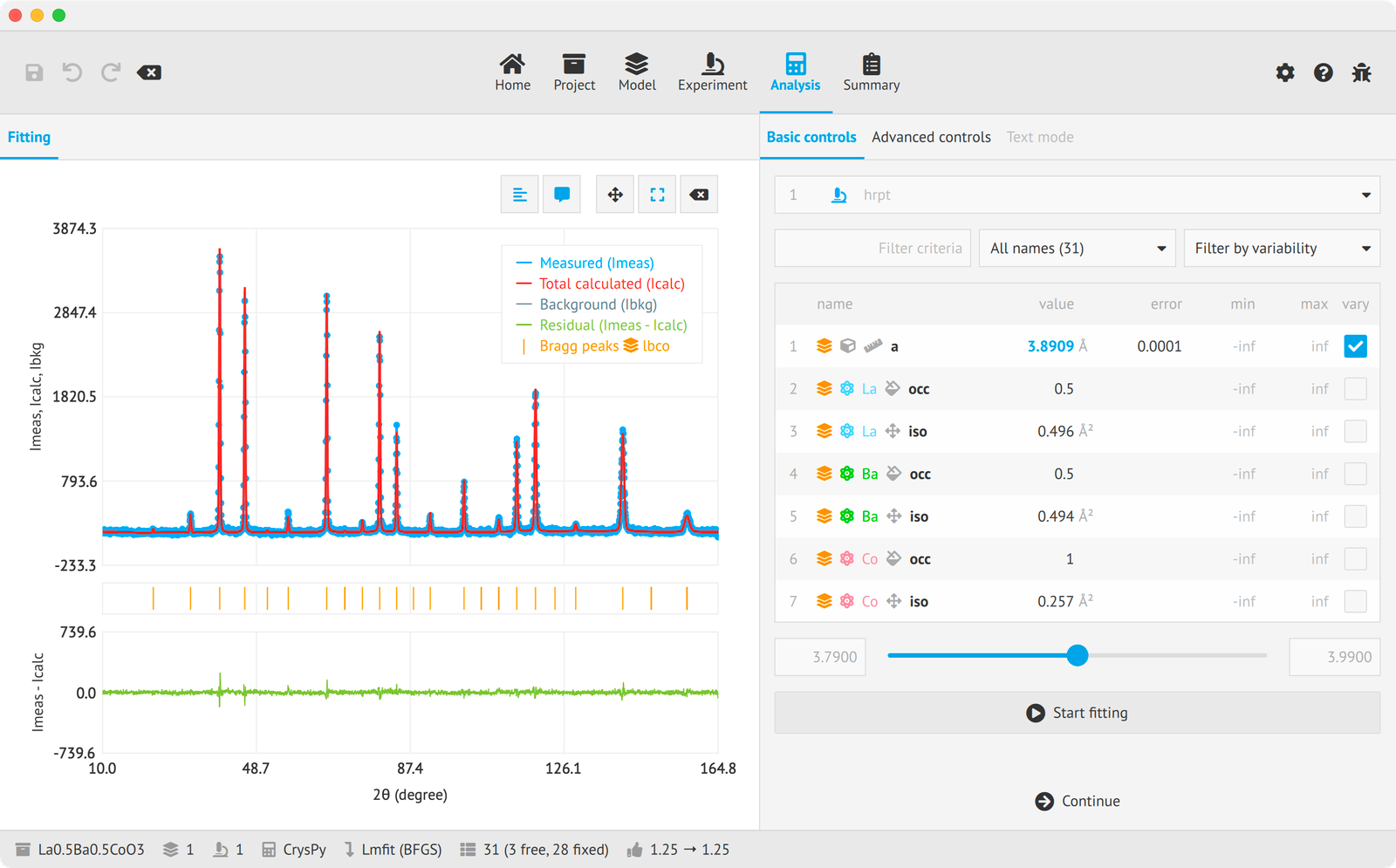Free and open-source
Anyone is free to use EasyDiffraction and the source code is openly shared on GitHub.
Cross-platform
EasyDiffraction works across operating systems: macOS, Windows, or Linux.
Easy to use
Intuitive tabbed interface with a clear workflow, built-in step-by-step user guides and video tutorials help speed up data modelling and analysis.
Everything is included
EasyDiffraction is distributed as an all-in-one package that includes all the dependencies and can be installed with only a few clicks.
Multi-functional
EasyDiffraction integrates existing crystallographic libraries, such as CrysPy and CrysFML (experimental), to cover different functionality.
Various techniques
Currently, we partially support 1D time-of-flight (TOF) and constant wavelength (CWL) neutron and X-ray powder diffraction data. More features will be added later.
Live update of calculations
You can modify any parameter manually or with a sidebar slider, and the simulated model curve is automatically recalculated in real time.
Human-readable syntax
Input/output files are in simple and human-readable data format STAR/CIF with the specifications of International Union of Crystallography, where possible.

